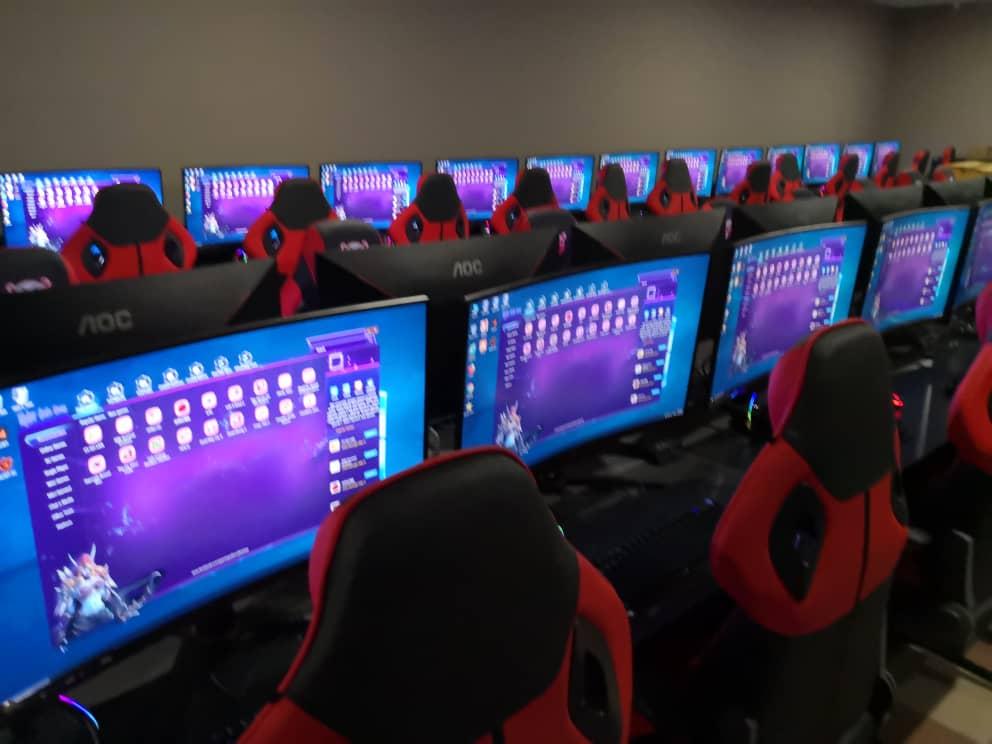‘No longer the era of computer games’: Pandemic adds to disconnect for cyber cafes
Cyber cafes could soon be a thing of the past as pandemic measures see more and more closing down.
For many years, Naufal Osman and his friends would go to cyber cafes nearly every day. There, they would spend their pocket money playing computer games, even skipping school every now and then in order to have their fun.
That was when he was 13. Now, at 28, it has been a year since he last set foot in a cafe, but the many fond memories he has of gaming with his friends remain.
Sadly, they may soon become nothing more than that as more and more cyber cafes are calling it a day, especially following the many restrictions brought about by the onset of the Covid-19 pandemic.
Even those that survived the first two movement control orders (MCOs) are unsure whether they will make it through the latest instalment of health restrictions.
Frank Ng, founder of Orange Esports Cafe, said his cyber cafes had had to rent out their desktops to the public in order to survive the MCOs.
“We closed down for two months,” he told MalaysiaNow. “Initially, we closed three outlets. After MCO 1.0 ended, we reopened in June but sales were slow to pick up.”
With lagging revenue, Orange was eventually forced to close for another two months.
“We laid off 50 workers around September. The situation became worse as the year ended – we closed down a total of 12 branches and laid off 80 workers.”
During the second MCO which began in January this year, his company sold off 200 computers and used the money to prop up operations. But now, four months and another MCO later, Orange is still struggling.
Even before Covid-19, Ng said cyber cafes had seen a drop in business. But it was the movement restrictions that dealt them what could end up being a death blow.
“To comply with the physical distancing SOPs, we can only operate at 50% capacity, which means our computers are underutilised,” he said.
“The limited operating hours also mean fewer customers.”
WIth SOPs tightened again under MCO 3.0, Ng said operators may no longer be able to cover operational costs.
“I have talked to other operators and computer suppliers,” he said. “Based on what they tell me, I can say that almost 50% of cyber cafes have closed nationwide since the MCO.”
This is sad news for gaming enthusiasts like Naufal, who went on to become a professional Dota player with a local e-sports team, and the thousands of students across the country who once flocked to cyber cafes for afternoon hangouts after school.
“Almost 50% of cyber cafes have closed nationwide since the MCO.”
“At that time, we played games like Dota for fun,” Naufal told MalaysiaNow. “We did not have strategies or objectives.”
He also recalled, after moving on to play more competitively, camping in cafes for two days in a row to train with his teammates, returning home only to bathe.
Such days may be over for those in the gaming community.
But it is not just gaming that will take a hit if these cafes close down.
“There are also students who come to cyber cafes for online learning sessions and to finish the tasks they need to do online such as university applications,” Ng said.
Tommy Tan, who runs a company that helps entrepreneurs set up cyber cafes, said he had not set one up since November 2019.
“Before the MCO, we could set up five to seven cyber cafes every year. We also helped in maintaining around 30 premises.
“But since March last year, our customers have been slowly closing down,” Tan, who has been in this business for a decade, told MalaysiaNow.
He cited financial constraints such as rental, staff salaries and utility bills, saying 15 cyber cafes under his maintainance had closed since last March.
Naufal believes the rise of mobile gaming has also contributed to cyber cafes’ drop in popularity.
“Kids today prefer simple games on their mobiles,” he said.
“It is no longer the era of computer games, so it is not impossible that one day most cyber cafes will close down for good with only e-sports hubs surviving.”
Subscribe to our newsletter
To be updated with all the latest news and analyses daily.
